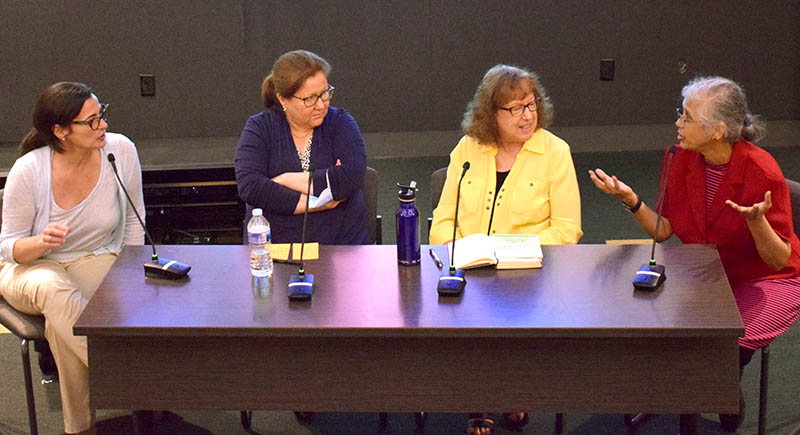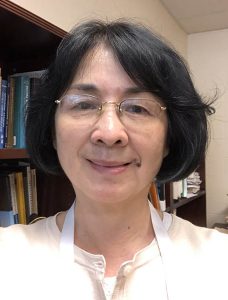May 16, 2022

Faculty from the electrical engineering and computer science department discuss women in engineering at a recent Inclusivity, Diversity and Equity retreat. From left: Giovanna Guidoboni, Filiz Bunyak, Marjorie Skubic and Shubhra Gangopadhyay.
Engineering is a great career option for creative women who want to change the world. Sometimes, though, that’s a tough message to convey to school-aged girls. During a panel discussion around inclusivity last week, faculty members from electrical engineering and computer science (EECS) shared their personal experiences and brainstormed ways to get more females excited about engineering.
“Engineering should be seen as a creative endeavor that impacts people,” Curators’ Distinguished Professor Marjorie Skubic said. “We creatively solve problems to improve lives. Why wouldn’t everyone want to do that?”
Despite progress over the years, men continue to make up the majority of the engineering profession. The panel discussion was part of a larger Inclusivity, Diversity and Equity retreat aimed to get faculty talking about how women are viewed in the field, especially in the area of computer science, an industry dominated by highly visible men.

Yunxin Zhao
Because of that lack of representation, there’s a misconception that engineers are technicians, Professor Yunxin Zhao said. In reality, engineering provides problem solving skills that are beneficial for personal and professional growth across industries.
Professor Giovanna Guidoboni, associate dean for research, said gender bias around women in STEM fields may be different across cultures. Growing up in Italy, she said, no one questioned whether she could be an engineer.
Other panelists from around the globe agreed. Professor Shubhra Gangopadhyay said when she came to the U.S., she simply ignored the naysayers. She said she refused to take “no” for an answer as she blazed a trail in research around nanomaterials and nanotechnologies.
But women shouldn’t have to be “stronger” or “smarter” compared to their peers to consider engineering for a profession, Assistant Professor Filiz Bunyak said. Panelists agreed that male students who are academically average don’t hesitate to enroll in engineering, while women feel they have to be above average.
The takeaway? Engineering is for anyone who wants to solve problems.
“It sounds simple, but we know there are all sorts of complex biases ingrained in our culture that we have to overcome to get more female students to realize they’re needed in engineering,” said Ye Duan, an associate professor and IDE Fellow who organized the retreat. “At the end of the day, we need creative ideas, new perspectives and a wider array of backgrounds and experiences to join the engineering profession and help us solve big problems. Engineering needs more women to be part of these discussions and solutions.”
Be part of an engineering program that welcomes all. Become a Mizzou Engineer.